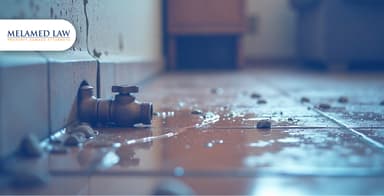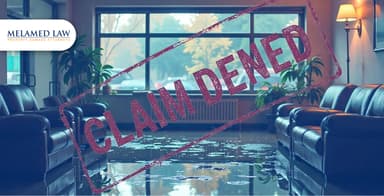
What are the best strategies to avoid business lawsuits in Florida?
When the unexpected happens, we help individuals and businesses collect the money they deserve for their insurance claims.
business lawsuit
December 30, 2024
What are the best strategies to avoid business lawsuits in Florida?

Running a business in Florida offers exciting opportunities but also brings specific legal challenges that require thoughtful planning. With Florida’s unique combination of state laws and regulations, staying on top of potential legal risks is crucial for any business owner. From disputes with employees and vendors to issues with customer policies or intellectual property, lawsuits can be costly, time-consuming, and potentially damaging to your reputation.
The good news? Proactive strategies, clear policies, and a firm understanding of how Florida law impacts your business can prevent many legal issues.
(1) The Financial Impact of Property Damage Lawsuits
When considering running a business in Florida, you might envision sunny beaches and vibrant cities. However, beneath that appealing facade lie potential pitfalls, especially regarding property damage lawsuits.
Explanation of Potential Costs
Suppose a customer slips on a wet floor in your store, and suddenly you’re facing a lawsuit. The immediate costs can be staggering. First, legal fees can quickly escalate into thousands of dollars, even for straightforward cases, as attorneys charge hourly rates that add up fast.
Then, there’s the possibility of settlements. Many businesses opt to settle out of court to avoid the uncertainty of a trial, but this often requires significant compensation to the injured party, which can heavily impact your finances. Additionally, if the damage is extensive, you may incur hefty repair costs, adding to your overall expenses.
Importance of Budgeting for Legal Risks
So, what can you do to shield yourself from these financial blows? The key lies in budgeting for legal risks. Just as you set aside funds for marketing or payroll, allocate a portion of your budget for potential legal issues. This doesn’t mean you expect a lawsuit, but rather that you’re preparing for the unexpected.
(2) Protecting Your Business Reputation
In the world of business, your reputation is your lifeblood. However, when a lawsuit arises, it can be overwhelming, threatening to overshadow all your hard work
How Lawsuits Affect Public Perception
When a lawsuit is filed against your business, it becomes more than just a legal issue; it also becomes a public concern. The mention of a lawsuit can raise doubts among customers and the community about your integrity and business practices. This shift in perception can erode customer loyalty and trust, which are vital for any successful business.
A single lawsuit can trigger a chain reaction. Customers who once appreciated your products or services may hesitate to engage with you, fearing controversy. It’s a tough reality to face, especially when your business practices don’t align with the negative narrative that often accompanies legal disputes.
The Role of Social Media in Amplifying Negative Publicity
A single tweet or post about your lawsuit has the potential to quickly reach thousands of people and spread rapidly. For instance, if a customer shares a negative experience associated with a lawsuit, others might follow suit, resulting in a negative feedback loop that can significantly damage your reputation.
Strategies for Maintaining a Positive Reputation in the Face of Disputes
So how can you protect your reputation, even when faced with legal challenges? Here are some strategies to consider:
Communicate Transparently: If a lawsuit arises, consider addressing it openly. Share your side of the story, emphasizing your commitment to resolving the issue amicably.
Engage with Your Community: Building strong relationships with your customers and the local community is essential. Be proactive in engaging with them through community events, social media, and direct outreach.
Highlight Positive Customer Experiences: Encourage satisfied customers to share their positive experiences online to remind potential customers of the value your business offers.
(3) Operational Disruptions Caused by Legal Issues

➤Overview of the Time and Resources Involved in Litigation
Legal battles often unfold over months, if not years, requiring significant attention from business leaders and staff. You’ll find yourself gathering documents, meeting with attorneys, and perhaps even preparing for depositions or court appearances. Each of these tasks demands hours of valuable time.
Beyond the immediate time commitment, litigation also diverts financial resources. Attorney fees, court costs, and potential settlements can accumulate rapidly, leading to unanticipated financial strain.
➤Importance of Maintaining Focus on Core Business Functions
Maintain focus on your core business functions by prioritizing what truly matters: your products, services, and customer relationships. One effective strategy is to delegate tasks related to the legal matter to trusted team members or legal professionals, allowing you to concentrate on strategic decision-making and service quality. Additionally, establishing a crisis management plan can help you proactively prepare for potential legal challenges, reducing disruptions when they arise.
(4) Insurance Implications and Costs
When it comes to property damage claims, the relationship between these claims and your insurance premiums can be complex and sometimes overwhelming. Here are the insurance implications and costs associated with property damage claims, and how you can effectively manage these aspects to safeguard your business.
A. The Connection Between Property Damage Claims and Insurance Premiums
Filing a property damage claim can significantly impact your insurance premiums. Insurers assess risk based on your claims history; therefore, the more claims you have, the higher the perceived risk—and consequently, the higher your premiums may soar. This connection can feel frustrating, especially when you’re already facing the financial fallout from the damage itself.
B. Potential Consequences of Frequent Claims on Coverage
Frequent claims can bring more than just higher premiums. Insurers may see multiple claims as a red flag, leading to stricter policy conditions, coverage limitations, or even cancellation, forcing you to find a new provider.
C. Tips for Managing Insurance Costs Through Risk Reduction
The good news is that there are effective strategies to manage insurance costs through risk reduction. Here are some actionable tips:
Conduct Risk Assessments: Regularly evaluate operations to identify hazards and prevent potential claims.
Implement Safety Protocols: Establish and train staff on safety measures to reduce accidents and show insurers your commitment to risk management.
Increase Deductibles: Raise your deductibles to lower premiums, reducing overall insurance costs despite higher out-of-pocket expenses for claims.
Bundle Insurance Policies: Explore bundling your property insurance with other types of coverage, such as liability or workers' compensation. Insurers often offer discounts for bundled policies. If your property damage claim receives a denial, you have additional options.
(5) What are Florida’s Premises Liability laws?

When you open your doors to the public, you’re not just welcoming customers; you’re also accepting a significant responsibility. In Florida, understanding Florida premises liability laws is crucial for protecting your business and ensuring a safe environment for everyone who steps foot on your property.
A. Overview of the Duty of Care for Businesses
At the heart of premises liability is the duty of care that business owners owe to their customers and visitors. This essentially means that you have a duty to maintain your property in a reasonably safe condition. Depending on the type of visitor, you owe the highest duty of care to invitees (customers), while you owe lesser protections to licensees (social guests) and trespassers.
For instance, if a customer slips and falls due to a wet floor in your store, you could be held liable if it’s determined that you failed to take reasonable steps to ensure their safety.
B. Example of Premises Liability Case in Florida and Their Implications
Several high-profile premises liability cases in Florida have shaped the legal landscape and provided important lessons for business owners. One significant case is Tobin v. Elks Club in 2012, where the court ruled in favor of a customer who was injured due to a failure to maintain safe conditions. This type of case highlights the necessity for businesses to stay vigilant about their premises and to be proactive in preventing accidents.
C. Legal Standards for Maintaining Safe Environments
Regular Inspections: Conduct routine property inspections to identify hazards, such as uneven surfaces and inadequate lighting.
Prompt Repairs: Immediately repair identified hazards to minimize accidents and show commitment to safety.
Clear Signage: Use visible signs to alert customers to hazards, such as “Wet Floor” or construction warnings, to prevent accidents.
Employee Training: Train staff to recognize and report potential hazards, ensuring they are equipped to help maintain a safe environment
How Melamed Law Can Help You with Risk Management
It’s wise to seek legal advice not just when you’re facing a potential lawsuit, but proactively. If you’re considering changes to your property, embarking on renovations, or even entering into a new lease agreement, having legal counsel from Melamed Law can ensure you’re making informed decisions that protect your interests. Contact us for a free consultation before complexities become an issue.
Our attorneys are experienced in Florida’s property damage laws. We help you understand potential liabilities, identify areas for improvement, and suggest strategies for risk mitigation. Taking these steps today can help you build a stronger, more resilient business for tomorrow.
Recent Cases














































